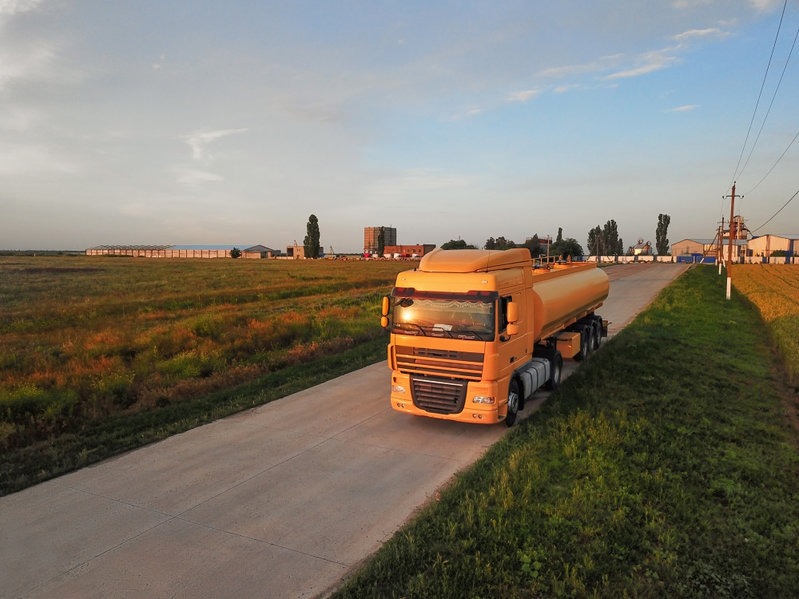For many drivers, having their own truck is the ultimate dream. You can build and furnish it completely according to your wishes. In addition, independence and freedom are common reasons for starting your own business as a transport entrepreneur with one truck of your own.
Yet for many becoming a self-employed truck driver is just a dream, because there’s a lot of work to be done before you get there. And if you think about it a bit further, the financial security of an employer is also nice.
So, there are plenty of pros and cons to consider whether or not to start as a self-employed driver. But once you’ve made the choice to become a self-employed driver in the Netherlands, what should you do? I’ll take you through what to do based on my experience with starting as a self-employed driver.
In this blog article you’ll read:
- NIWO license
- Module 1 | Financial management
- Module 2 | Business management
- Module 3 | Staff management
- Module 4 | Calculation
- Module 5 | Road transport of goods part 1
- Module 6 | Road transport of goods part 2
- Course
This is a picture of me and my current truck

NIWO license
If you want to register as a self-employed driver in the Netherlands, you will need to have a NIWO license. In order to apply for a NIWO license, you must meet a number of requirements:
- You are creditworthy
You must be able to prove that you are creditworthy enough to start your business, the minimum starting capital is € 9000,- of your own money for 1 vehicle - You have a sustainable establishment in the Netherlands
This means that you must have a permanent address - You have a VOG
With your application you must be able to present a VOG (Verklaring Omtrent Gedrag), translated this means you need a ‘Certificate of Good Behaviour’ - You’re competent
You must be able to show that you are competent enough, you do this with the professional diploma ‘Entrepreneur professional road transport’.
The above mentioned professional diploma consists of 6 modules. For each module you have to take an exam at the CBR. The CBR is testing the driving skills and medical condition of (rookie) drivers in the Netherlands. You can read what each module entails below.
Module 1 | Financial management
This module is pretty tough to learn. Especially if you’re not at all accounting literate. Have you already obtained an accounting degree in the past? If so, you can look into getting an exemption for this module.
Module 2 | Business management
What do you encounter when you start running your own business? In the business management module you”ll deal with issues such as law and legislation, insurance and taxes. You’ll also learn how to best market your company through marketing.
Module 3 | Staff management
This module is not very complicated. You’ll deal with questions like, “How do I deal with personnel?” and “What are my rights and obligations towards personnel?”. But you’ll also learn about social legislation and the collective bargaining agreement in this module.
Module 4 | Calculation
A good calculation of your costs is of course essential to determine what rate you should charge your customers. It is of course the intention that you will make a profit with your business, otherwise you will not last long as an entrepreneur.
Module 5 | Road transport of goods part 1
This section focuses mainly on legislation and permits in goods transport. For example, if you are going to make a trip to Turkey, you don’t want to have any surprises along the way.

Module 6 | Road transport of goods part 2
For this exam, your practical knowledge will be put to the test. For example, which specific vehicle you need to transport certain goods. You obviously can’t transport liquid concrete with a sliding tarpaulin trailer, or pallets with a concrete mixer.
Course
So you have to take 6 exams at the CBR to get the professional diploma. But what type of course is compatible with this?
Several trainers offer a home study so you can learn the theory at your own pace and in your own time. When you have mastered the theory sufficiently, you can request an exam from the CBR.
You can also choose to follow the course in a classroom setting at an accredited trainer in your area. Usually you’ll go to school a few days each part, and you’ll have the necessary papers in your pocket within a few months.
If you’re in a hurry to get your papers, or just don’t want to put in that much time, you can also opt for a crash course. I myself opted for the latter, and it worked out very well for me. Keep in mind that this form of training goes at a very fast pace. If you do not have basic knowledge of the various components, this is a very tough form of training.

I spent a total of 8 days on the course and passed all the sections in 1 go. I had exams for 4 of the 6 modules on the training day as well. The advantage of this is that the theory is still fresh in your mind.
The financial management and calculation modules took 2 days each. On the second course day of financial management I also had an exam in the afternoon. I did the calculation module in a weekend, followed by the exam on Monday morning.
In total there was less than 3 weeks between my first course day and the last exam. So, if you want to get the diploma quickly I can definitely recommend this. There are several trainers in the Netherlands that offer this quick course, I did my training at the Beroepsvervoer Academie in Amsterdam.
Whatever form of course you choose, I wish you the best of luck!
- Buy or sell your truck with DeTruckfinancier - 8 February 2024
- This is how you can use wifi in the truck on the go - 2 January 2024
- The 10 best V8s for sale – October 2023 – TrucksNL - 31 October 2023

